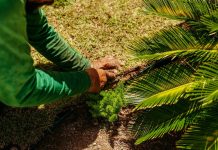
A new study conducted by researchers at Rockefeller University and Memorial Sloan Kettering Cancer Center in New York City suggests that brown fat is not linked to cachexia, a common condition associated with cancer that causes a loss of body weight and muscle mass.
In fact, the study found a trend suggesting that brown fat may even help improve survival rates in people with cancer.
Brown fat has been connected to several health benefits, including lower rates of heart disease, diabetes, and high blood pressure.
However, some studies in mice have suggested that brown fat may lead to cachexia, prompting researchers to investigate whether the same is true in humans.
The study included more than 14,000 adults aged 18 and older who were studied from June 2009 through March 2018.
Participants with more than one cancer diagnosis or unstageable cancers were excluded, in addition to other factors.
Over 8,600 people in the study were identified as having cachexia based on their body mass index and a previous diagnosis of cachexia within 12 months of a cancer diagnosis, which was consistent with previous studies.
Participants with cachexia were more likely to be older, male, current smokers, and to have a greater percentage of weight loss.
They were also more likely to self-identify as Asian or Black, and cachexia was more prevalent in participants with cancers of the head and neck, brain, and upper gastrointestinal tract.
The researchers found a “much lower prevalence of cachexia” in people who had brown fat compared to those without it.
To further test for cancer-specific associations, the researchers analyzed tumor sites from 100 people with breast, bronchus, lung, and blood cancers who also had brown fat in their bodies.
“Brown fat is linked to a broad spectrum of health benefits in humans,” said Paul Cohen, MD, Ph.D., of The Rockefeller University and lead author of the study.
“We hope that our findings will increase interest in studying brown fat and leverage its health benefits in patients with and without cancer.”
Overall, the study suggests that brown fat may not be a risk factor for cachexia in people with cancer, and may offer some protective benefits.
This finding adds to the growing body of research highlighting the potential health benefits of brown fat and may lead to further research exploring its role in cancer prevention and treatment.
Brown fat, also known as brown adipose tissue, is a type of fat that is found in small amounts in the bodies of adults.
Unlike white fat, which stores calories for energy, brown fat burns calories to produce heat, helping to regulate body temperature.
Brown fat is particularly abundant in babies and hibernating animals, where it helps to keep them warm during periods of cold weather.
In recent years, researchers have become interested in the potential health benefits of brown fat.
Studies have suggested that people with higher levels of brown fat may have a lower risk of obesity, diabetes, and heart disease, as well as improved insulin sensitivity and cholesterol levels. Brown fat may also play a role in regulating metabolism and promoting weight loss.
Research has also shown that certain lifestyle factors can help to increase brown fat activity. Exposure to cold temperatures, for example, can stimulate brown fat to burn calories and produce heat.
Exercise has also been shown to increase brown fat activity, as has eating a healthy diet that is high in fiber and low in saturated fat.
If you care about cancer, please see recent studies about a new way to increase the longevity of cancer survivors, and results showing a new way to supercharge cancer-fighting T cells.
For more information about cancer and nutrition, please see recent studies about how drinking milk affects the risks of heart disease and cancer and results showing that vitamin D supplements could strongly reduce cancer death.
The study was published in the American Journal of Physiology-Endocrinology and Metabolism.
Copyright © 2023 Knowridge Science Report. All rights reserved.



